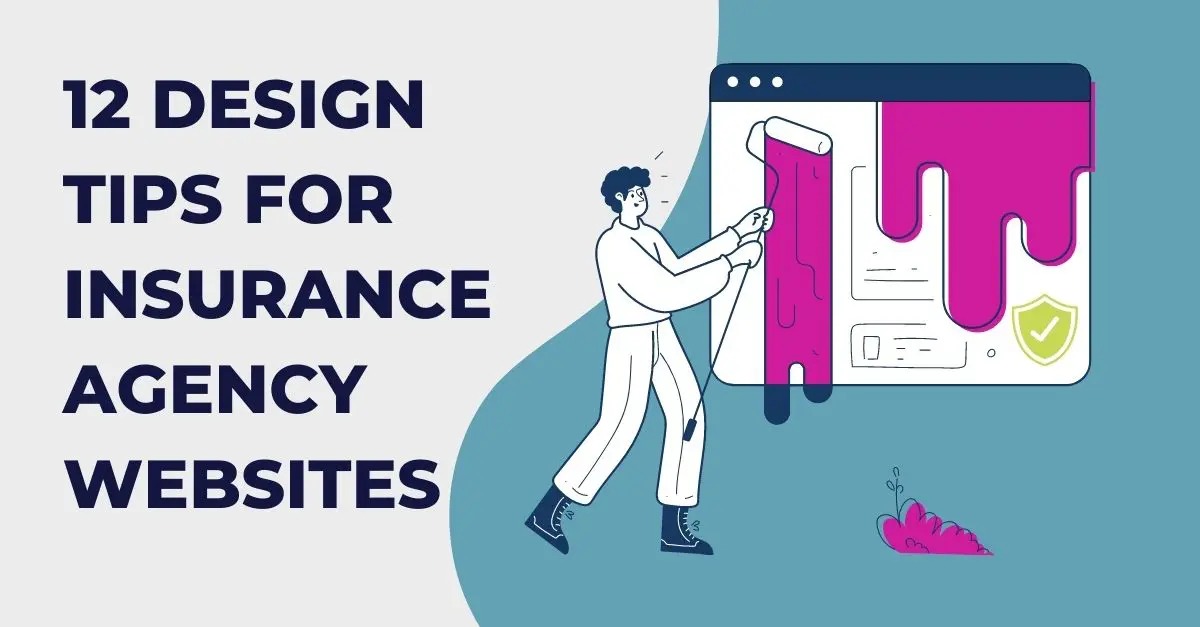

Finance
How To Run An Insurance Agency
Published: November 22, 2023
Learn the essential steps to successfully run an insurance agency and achieve financial success in the competitive finance industry.
(Many of the links in this article redirect to a specific reviewed product. Your purchase of these products through affiliate links helps to generate commission for LiveWell, at no extra cost. Learn more)
Table of Contents
- Introduction
- Setting Up Your Insurance Agency
- Establishing Your Agency’s Goals and Vision
- Obtaining the Required Licenses and Insurance
- Building a Team of Qualified Insurance Agents
- Creating an Effective Marketing Strategy
- Setting Up Efficient Office Operations
- Choosing the Right Insurance Carriers to Partner With
- Understanding the Different Types of Insurance Policies
- Training Your Agents to Provide Excellent Customer Service
- Implementing a Robust Sales Process
- Managing Finances and Budgeting for Growth
- Embracing Technology and Automation for Efficiency
- Building Strong Relationships with Clients and Referral Sources
- Monitoring and Adjusting Your Business Strategy
- Conclusion
Introduction
Welcome to the world of insurance agencies! Whether you are a seasoned expert or just starting out, running an insurance agency can be a challenging yet rewarding endeavor. As an insurance agent, you have the opportunity to provide individuals and businesses with the financial protection they need in times of unforeseen events.
In this article, we will explore the essential steps and strategies to successfully run an insurance agency. From setting up your agency to managing finances and building strong relationships with clients, we will cover it all.
As an insurance agency owner, it is vital to have a clear understanding of your target market and the types of insurance products you want to offer. This will help you tailor your services to meet the specific needs of your clients and enable you to differentiate yourself in a competitive industry.
Additionally, having a well-crafted vision and mission statement is crucial. It will serve as a guiding light for your agency, defining its purpose and long-term goals. This clarity of purpose will not only help you stay focused, but also enable you to attract like-minded employees and clients who share your values.
In the following sections, we will dive into the practical aspects of setting up and running an insurance agency. From obtaining the necessary licenses and insurance to building a talented team of agents, we will provide you with the insights and strategies you need to succeed in this dynamic industry.
So, whether you are an aspiring insurance agency owner or looking to enhance your existing business, let’s embark on this journey together as we discover the keys to running a successful insurance agency.
Setting Up Your Insurance Agency
Setting up your insurance agency requires careful planning and attention to detail. Here are some key steps to follow:
- Choose a Business Structure: Decide on the legal structure of your agency, such as a sole proprietorship, partnership, or limited liability company (LLC). Consult with a legal professional to determine the best option for your specific needs.
- Create a Business Plan: Develop a comprehensive business plan that outlines your agency’s goals, target market, marketing strategies, and financial projections. This plan will serve as a roadmap for your agency’s growth and success.
- Obtain the Necessary Licenses: Research and obtain the required licenses to operate as an insurance agency in your state. This typically includes a producer license for yourself and licenses for any agents you plan to hire.
- Secure Insurance: As an insurance agency, it is crucial to have professional liability insurance, also known as errors and omissions (E&O) insurance. This coverage protects you and your agency against claims of negligence or mistakes in your professional services.
- Set Up a Business Bank Account and Accounting System: Establish a separate business bank account to keep your personal and business finances separate. Implement an accounting system or hire an accountant to keep track of your agency’s financials.
- Create a Professional Website and Branding: Develop a professional website that showcases your agency’s services and expertise. Invest in professional branding, including a logo, business cards, and marketing materials, to build a strong and credible brand image.
- Establish Relationships with Insurance Carriers: Reach out to different insurance carriers to become appointed with them. Being appointed allows you to sell their insurance products and access a wider range of coverage options for your clients.
- Set Up Technology Systems: Invest in insurance agency management software to streamline your operations, automate tasks, and improve efficiency. This software can assist with client management, policy tracking, and reporting.
- Develop Referral Relationships: Network with other professionals in related fields, such as real estate agents, mortgage brokers, and financial advisors, to establish referral relationships. These connections can help you generate leads and expand your client base.
- Comply with Legal and Regulatory Requirements: Familiarize yourself with the insurance laws and regulations in your state and ensure that your agency complies with all requirements, including maintaining proper records and adhering to marketing guidelines.
By following these steps and putting in the necessary effort, you can lay a solid foundation for your insurance agency’s success. Stay tuned for the next section, where we will discuss establishing your agency’s goals and vision.
Establishing Your Agency’s Goals and Vision
Establishing clear goals and a compelling vision is essential for the success of your insurance agency. It provides direction, motivation, and a roadmap for growth. Here are some key steps to help you establish your agency’s goals and vision:
- Define Your Agency’s Purpose: Start by clarifying the purpose of your agency. What does your agency aim to achieve? What value do you want to bring to your clients? Having a clear purpose will guide your decision-making and help create a sense of meaning and fulfillment in your work.
- Set SMART Goals: SMART is an acronym for specific, measurable, achievable, relevant, and time-bound. Set specific goals that are measurable, attainable, aligned with your agency’s purpose, and have a clear deadline. For example, a goal could be to increase revenue by 20% within the next year.
- Align Goals with Market Opportunities: Assess the market opportunities and trends in the insurance industry. Identify areas where your agency can focus and excel. For instance, if there is a growing demand for cybersecurity insurance, you may set a goal to become a leader in providing this type of coverage.
- Involve Your Team: It is crucial to involve your team in the goal-setting process. Discuss and collaborate on setting departmental and individual goals that align with the overall agency’s goals. This not only fosters a sense of ownership but also encourages teamwork and accountability.
- Create a Compelling Vision: Craft a compelling vision statement that describes the future you envision for your agency. It should inspire and resonate with your team and clients. A strong vision statement can attract top talent, create a sense of purpose, and differentiate your agency from competitors.
- Communicate and Reinforce Goals and Vision: Once you have established your goals and vision, consistently communicate them to your team. Use various channels, such as team meetings, email updates, and visual displays, to reinforce the goals and keep everyone focused and motivated.
- Monitor Progress and Adapt: Regularly track and assess the progress towards your goals. Monitor key performance indicators (KPIs), such as revenue growth, client retention rate, or customer satisfaction. Adjust your strategies if needed to stay on track and align with market changes.
- Celebrate Achievements: Celebrate both small and big achievements along the way. Recognize and reward your team for their contributions towards the agency’s goals. This fosters a positive work culture and encourages continued commitment to the vision.
Remember, your agency’s goals and vision should be dynamic and adaptable. Embrace feedback, learn from failures, and continuously refine your goals and vision as your agency evolves. By establishing clear goals and a compelling vision, you will create a roadmap for success and inspire your team to reach new heights.
In the next section, we will explore the licenses and insurance you need to operate your insurance agency.
Obtaining the Required Licenses and Insurance
Obtaining the necessary licenses and insurance is a critical step in setting up and operating your insurance agency. Here are the key things you need to know:
Licenses:
Each state has its own requirements for insurance agency licenses. You will need to research and understand the specific licensing requirements for the state(s) in which you plan to operate your agency. Typically, you will need to obtain a producer license for yourself and potentially licenses for any agents you plan to hire.
Contact your state insurance department to learn about the licensing process, including the education and examination requirements. Some states may also require you to complete pre-licensing courses before taking the licensing exam.
Ensure that you comply with any ongoing continuing education requirements to maintain your license. Staying updated on changes in the insurance industry will not only help you provide better service to your clients but also ensure your compliance with regulatory standards.
Insurance Coverage:
As an insurance agency, it is essential to have professional liability insurance, also known as errors and omissions (E&O) insurance. This coverage protects you and your agency in the event of a claim of negligence, errors, or omissions in the services you provide. E&O insurance can help cover legal expenses and settlement costs, providing you and your clients with financial protection.
In addition to professional liability insurance, you may also need general liability insurance to protect against claims of bodily injury, property damage, or advertising injury. This coverage can be crucial if you have a physical office space or interact with clients in-person.
It’s important to work with a reputable insurance broker or agent who specializes in insurance for insurance agencies. They can help you assess your specific risks and recommend appropriate coverage options based on your agency’s size, services, and client base.
Compliance and Regulations:
Ensure that you understand and comply with all the legal and regulatory requirements for your insurance agency. This includes maintaining proper records, adhering to advertising and marketing guidelines, and handling clients’ personal information securely and responsibly in compliance with privacy laws.
Stay updated with any regulatory changes in the insurance industry and adjust your practices accordingly. Engage with industry associations and participate in continuing education programs to stay informed about best practices and changes in laws and regulations.
By obtaining the necessary licenses and insurance coverage, you demonstrate your professionalism and commitment to compliance. This not only protects your agency and clients but also helps build trust and credibility in the marketplace.
In the next section, we will discuss the importance of building a team of qualified insurance agents for your agency.
Building a Team of Qualified Insurance Agents
A successful insurance agency is built on the foundation of a talented and dedicated team. To achieve your agency’s goals and provide exceptional service to your clients, it’s crucial to attract and retain qualified insurance agents. Here are some steps to help you build a team of skilled professionals:
Define Your Ideal Candidate:
Before you start recruiting, clearly define the qualities and skills you are looking for in an insurance agent. Consider the specific lines of insurance you specialize in and the target market you serve. Look for candidates who have a background or experience related to those areas, possess strong communication and interpersonal skills, and have a genuine passion for helping clients navigate the world of insurance.
Recruitment Strategies:
Use a variety of recruitment strategies to attract top talent. This can include posting job openings on reputable job boards, attending industry events and career fairs, networking with professionals in the insurance industry, and leveraging social media to spread the word about your agency and opportunities. Consider offering referral incentives to current employees or clients to help you find qualified candidates.
Screening and Interviewing:
Develop a structured screening and interviewing process to evaluate candidates effectively. Review resumes and cover letters to shortlist candidates who meet your criteria. Conduct thorough interviews to assess their industry knowledge, sales skills, problem-solving abilities, and cultural fit. Use scenario-based questions to gauge their ability to handle real-life insurance situations.
Ongoing Training and Development:
Invest in the training and development of your insurance agents to help them grow and excel in their roles. Provide comprehensive onboarding to familiarize new agents with your agency’s processes, products, and systems. Offer ongoing training opportunities, both internally and through industry certifications, to enhance their knowledge and skillset. Foster a culture of continuous learning and encourage agents to stay updated with industry trends and regulations.
Performance Management and Recognition:
Implement a performance management system to track and evaluate the performance of your insurance agents. Set clear expectations, provide regular feedback, and recognize and reward their achievements. Establish key performance indicators (KPIs) that align with your agency’s goals and use them to measure individual and team performance. Celebrate milestones and acknowledge agents’ contributions to their success.
Cultivate a Positive Work Environment:
Create a supportive and positive work environment that fosters teamwork, collaboration, and professional growth. Encourage open communication, provide opportunities for agents to share their ideas and feedback, and recognize their unique contributions. Offer a competitive compensation and benefits package that aligns with industry standards to attract and retain top talent.
Building a team of qualified insurance agents takes time and effort, but it is worth the investment. Remember that your agents are the face of your agency, and their expertise and dedication will play a significant role in your agency’s success.
In the next section, we will discuss the importance of creating an effective marketing strategy for your insurance agency.
Creating an Effective Marketing Strategy
In today’s competitive insurance industry, having an effective marketing strategy is crucial to stand out from the competition and attract clients. A well-executed marketing plan can help you reach your target audience, build brand awareness, and drive growth for your insurance agency. Here are some key steps to create an effective marketing strategy:
Identify Your Target Audience:
Before you can effectively market your insurance agency, you need to identify your target audience. Determine the demographics, needs, and pain points of your ideal clients. This will allow you to tailor your marketing messages and tactics to resonate with them specifically.
Set Clear Marketing Goals:
Establish clear and measurable marketing goals that align with your agency’s overall objectives. Whether it’s increasing brand awareness, generating leads, or improving client retention, setting specific goals will help guide your marketing efforts and allow you to track your progress.
Create a Strong Brand Identity:
Develop a compelling brand identity that reflects your agency’s values and sets you apart from competitors. Design a visually appealing logo, choose consistent brand colors, and develop a unique brand voice and tone that convey professionalism and trustworthiness.
Utilize Multiple Marketing Channels:
Leverage various marketing channels to reach your target audience effectively. This can include a combination of digital channels such as social media marketing, content marketing, search engine optimization (SEO), email marketing, and paid advertising. Additionally, explore traditional marketing channels like print advertisements, direct mail, and networking events.
Create Engaging Content:
Develop valuable and informative content that educates and engages your audience. Create blog posts, articles, videos, and infographics that address common insurance-related questions and concerns. Share your expertise to establish credibility and position your agency as a trusted resource.
Engage in Social Media:
Utilize social media platforms to connect with your audience and build relationships. Identify the platforms where your target audience is most active and create engaging content to share. Engage in conversations, respond to comments and messages, and foster a sense of community around your brand.
Establish Strategic Partnerships:
Collaborate with other professionals and businesses in related industries to establish strategic partnerships. This can include referral agreements with real estate agents, mortgage brokers, or financial advisors who can refer clients to your agency. Work together to cross-promote and reach a wider network of potential clients.
Track and Analyze Results:
Regularly track and analyze the effectiveness of your marketing efforts. Use analytics tools to measure key metrics such as website traffic, conversion rates, and lead generation. This data will help you determine what strategies are working and identify areas for improvement.
Adapt and Evolve:
The insurance industry is constantly evolving, and so should your marketing strategy. Stay updated with industry trends and adjust your marketing tactics accordingly. Continuously seek feedback from your clients and make necessary changes to improve your offerings and customer experience.
Remember, consistently implementing and refining your marketing strategy is key to its success. By effectively promoting your agency and building relationships with your target audience, you will position yourself for growth and long-term success.
In the next section, we will discuss setting up efficient office operations for your insurance agency.
Setting Up Efficient Office Operations
Efficient office operations are essential for managing the day-to-day activities of your insurance agency and ensuring smooth workflow and productivity. Here are some key steps to help you set up efficient office operations:
Streamline Workflow Processes:
Analyze and streamline your agency’s workflow processes to eliminate unnecessary steps and bottlenecks. Map out the customer journey and the internal processes involved in servicing clients, from lead generation to policy issuance. Look for areas where you can automate tasks, implement technology solutions, and create standardized procedures to improve efficiency.
Invest in Insurance Agency Management Software:
Implement insurance agency management software to streamline operations and improve productivity. This software can help with client management, policy tracking, document management, commission calculations, and reporting. Choose a system that aligns with your agency’s specific needs and integrates well with other tools you use.
Establish Clear Communication Channels:
Establish effective communication channels to ensure smooth collaboration between team members. Utilize tools such as project management software, instant messaging platforms, and email to facilitate quick and organized communication. Encourage transparent and open communication among team members to foster a culture of collaboration and teamwork.
Implement Document Management Systems:
Implement a digital document management system to store and organize important client files and agency documents. This will help streamline access to information, improve data security, and reduce physical clutter in the office. Ensure that your document management system has proper backup processes in place to protect against data loss.
Automate Routine Tasks:
Identify routine tasks that can be automated to free up time for your team to focus on more important and value-added activities. This can include automated email responses, appointment scheduling software, or automated policy renewal reminders. Look for opportunities to leverage technology to streamline administrative tasks and improve overall efficiency.
Create a Well-Organized Office Space:
A well-organized office space promotes productivity and efficiency. Keep your physical workspace tidy and create a logical filing system for physical documents. Ensure that necessary resources, such as office supplies and equipment, are easily accessible to team members. Consider ergonomic furniture and lighting to support a comfortable and healthy working environment.
Implement Efficient Meeting Practices:
Make the most of your team’s time by implementing efficient meeting practices. Set clear agendas, stick to scheduled meeting times, and assign action items with clear deadlines. Use collaborative tools for virtual meetings to ensure remote team members can actively participate. Regularly evaluate the necessity and effectiveness of meetings to avoid unnecessary disruptions to workflow.
Continuously Improve Processes:
Encourage a culture of continuous improvement within your agency. Regularly seek feedback from team members on areas that can be improved. Evaluate performance metrics, identify areas of inefficiency, and implement changes to optimize office operations. Encourage team members to actively contribute ideas for improving processes and reward innovative and efficiency-focused initiatives.
By setting up efficient office operations, you can enhance productivity, streamline processes, and create a more positive and productive work environment. Efficient operations not only benefit your team but also positively impact client experiences and overall agency success.
In the next section, we will discuss the importance of choosing the right insurance carriers to partner with for your agency’s success.
Choosing the Right Insurance Carriers to Partner With
Choosing the right insurance carriers to partner with is a critical decision that can significantly impact the success and growth of your insurance agency. Partnering with reputable and reliable insurance carriers enables you to offer a wide range of insurance products to your clients. Here are key factors to consider when selecting insurance carriers to partner with:
Product Offering:
Evaluate the insurance products and coverage options offered by different carriers. Look for carriers that align with your agency’s target market and the specific needs of your clients. Consider the breadth of product lines, including property and casualty, life, health, commercial, and specialty insurance. Offering a diverse portfolio of high-quality products allows you to cater to a wider range of clients’ insurance needs.
Financial Stability and Reputation:
Research the financial stability and reputation of the insurance carriers you are considering. Look for carriers with a strong financial track record, good ratings from independent rating agencies, and a history of prompt claims payment. Working with financially stable carriers helps instill trust and confidence in your clients and ensures that claims will be handled efficiently.
Underwriting and Claims Process:
Assess the underwriting and claims process of potential carriers. Look for carriers with efficient and responsive underwriting processes that enable you to provide timely quotes to clients. Consider the ease of claims filing, the availability of online claims portals, and the carrier’s reputation for fair and efficient claims handling. A smooth underwriting and claims process can enhance client satisfaction and strengthen your agency’s reputation.
Technology and Tools:
Consider the technology and tools provided by insurance carriers to streamline your agency’s operations. Look for carriers that offer user-friendly online platforms for quoting, policy issuance, and policy management. Evaluate the availability of marketing resources, training materials, and analytics tools that can help you effectively sell and promote their products. Access to advanced technology and support can enhance your agency’s efficiency and customer service.
Agent Support and Training:
Evaluate the level of support and training provided by insurance carriers. Look for carriers that offer training programs and resources to help you and your agents stay updated on their products and industry trends. Consider the availability of dedicated underwriters, marketing representatives, and responsive customer service to assist you in delivering excellent service to your clients. A carrier that values the success of their agent partners and provides ongoing support can contribute to your agency’s growth.
Commission Structure and Compensation:
Understand the carriers’ commission structures and compensation models. Evaluate the commission rates for different product lines and the potential for additional bonuses or incentives based on performance. Consider the administrative support and ease of commission processing. Choose carriers that offer competitive compensation while also considering the overall value they provide to your agency and clients.
Agency-Carrier Relationship:
Lastly, consider the compatibility and long-term potential of the agency-carrier relationship. Look for carriers who view their agent partners as valued collaborators and are willing to work closely with you to meet your agency’s needs. Establish strong relationships with carrier representatives, attend their partner events, and stay engaged in ongoing communication for a mutually beneficial partnership.
Choosing the right insurance carriers to partner with is a strategic decision that impacts your agency’s reputation, growth, and ability to meet clients’ needs. Take the time to research and assess carriers based on their product offerings, financial stability, support, and compatibility with your agency’s goals and clientele.
In the next section, we will explore the different types of insurance policies that you should be familiar with as an insurance agency owner.
Understanding the Different Types of Insurance Policies
As an insurance agency owner, it is essential to have a comprehensive understanding of the different types of insurance policies available to your clients. This knowledge will enable you to provide tailored advice and guidance based on their specific needs. Here are some of the key types of insurance policies that you should be familiar with:
1. Property and Casualty Insurance:
Property and casualty insurance protects against damage or loss of property and covers liability for injuries or damages caused to others. This includes homeowners insurance, renters insurance, auto insurance, and commercial property insurance. It provides financial protection for individuals, businesses, and their assets in the event of accidents, natural disasters, theft, or lawsuits.
2. Life Insurance:
Life insurance provides a death benefit to beneficiaries upon the insured’s death. It offers financial security to loved ones and can help cover funeral expenses, debts, and future financial needs. There are different types of life insurance such as term life insurance, whole life insurance, and universal life insurance, each with its own features and benefits.
3. Health Insurance:
Health insurance covers medical expenses and helps individuals and families afford healthcare services. It can include coverage for doctor visits, hospital stays, prescription medications, and preventive care. Health insurance policies can be obtained through employers, government programs, or purchased individually.
4. Disability Insurance:
Disability insurance provides income replacement in the event the insured becomes unable to work due to an illness or injury. It helps replace a portion of lost income, ensuring financial stability during a period of disability. There are short-term and long-term disability insurance options available.
5. Liability Insurance:
Liability insurance protects against claims or lawsuits filed against the insured for bodily injury or property damage caused to others. It provides coverage for legal expenses, medical bills, and damages awarded in a lawsuit. Common types of liability insurance include general liability, professional liability (errors and omissions), and directors and officers liability.
6. Commercial Insurance:
Commercial insurance offers coverage tailored to the specific risks faced by businesses. It includes property insurance for buildings and contents, general liability insurance, commercial auto insurance, workers’ compensation insurance, and business interruption insurance. Commercial insurance helps protect businesses from financial losses due to property damage, lawsuits, or unexpected events.
7. Specialty Insurance:
Specialty insurance policies provide coverage for unique or specific needs. This can include insurance for niche industries, such as technology, entertainment, or aviation. It can also include coverage for specific events or situations, such as travel insurance, event insurance, or pet insurance. Specialty insurance policies cater to specialized risks and offer customized coverage options.
These are just a few examples of the many types of insurance policies available. It’s important to constantly educate yourself about new policies and coverage options, as the insurance industry is continually evolving. By having a deep understanding of these different policies, you can better serve your clients and help them make informed decisions that align with their individual and business needs.
In the next section, we will discuss the importance of training your insurance agents to provide excellent customer service.
Training Your Agents to Provide Excellent Customer Service
Excellent customer service is crucial for the success of your insurance agency. Well-trained agents who provide exceptional customer service can build strong relationships with clients, drive customer loyalty, and generate positive word-of-mouth referrals. Here are some key steps to training your agents to provide excellent customer service:
1. Emphasize the Importance of Customer Service:
Create a culture that values and prioritizes customer service. Clearly communicate to your agents that providing exceptional service is not just a goal, but a fundamental aspect of your agency’s success. Help them understand that each client interaction is an opportunity to exceed expectations and build long-lasting relationships.
2. Provide Comprehensive Product Knowledge:
Equip your agents with in-depth knowledge about the insurance products you offer. This includes understanding the features, benefits, and coverage options for each policy. Ensure they have a thorough understanding of how different policies work and can effectively explain complex insurance concepts to clients. Regularly provide product training to keep them updated on new offerings or changes in policies.
3. Develop Effective Communication Skills:
Effective communication is at the core of excellent customer service. Train your agents on active listening, empathy, and clear communication techniques. Help them develop the ability to ask probing questions to truly understand clients’ needs and concerns. Provide guidance on professional phone etiquette, written communication, and face-to-face interactions.
4. Focus on Relationship Building:
Encourage your agents to go beyond transactional interactions and focus on building genuine relationships with clients. Teach them the importance of rapport building, trust, and empathy. Provide examples and role-play scenarios to help them develop the skills to connect with clients on a personal level.
5. Problem-Solving and Conflict Resolution:
Train your agents on effective problem-solving and conflict resolution techniques. Equip them with the skills to handle customer complaints, address concerns, and find satisfactory resolutions. Provide guidance on handling difficult situations, managing emotions, and turning negative experiences into positive ones.
6. Continuous Training and Development:
Invest in ongoing training and development for your agents. Offer regular workshops, seminars, and webinars to enhance their customer service skills. Provide opportunities to learn from industry experts, attend conferences, and participate in online courses. Encourage agents to continuously seek feedback, self-assess, and improve their customer service skills.
7. Role Modeling and Mentoring:
Lead by example and demonstrate excellent customer service in your own interactions with clients. Act as a mentor and coach to your agents, providing feedback, guidance, and support. Encourage them to learn from each other and foster a collaborative and learning-oriented team environment.
8. Measure and Reward Customer Service Excellence:
Establish key performance indicators (KPIs) related to customer service, such as customer satisfaction ratings or retention rates. Regularly measure and monitor these KPIs to assess the performance of your agents. Recognize and reward agents who consistently provide exceptional customer service, reinforcing the importance of delivering a superior client experience.
By providing comprehensive customer service training to your agents, you equip them with the skills and knowledge to establish strong client relationships and deliver exceptional service. This not only leads to satisfied clients but also contributes to the long-term success and growth of your insurance agency.
In the next section, we will explore the implementation of a robust sales process within your insurance agency.
Implementing a Robust Sales Process
Implementing a robust sales process is essential for driving growth and success in your insurance agency. A well-defined and structured sales process helps your agents effectively engage with prospects, convert leads into clients, and maximize sales opportunities. Here are key steps to implementing a robust sales process:
1. Define the Sales Process:
Start by clearly defining the stages and steps of your sales process. Outline the key activities, milestones, and expected outcomes at each stage. This provides a framework for your agents to follow and ensures consistency and efficiency in their sales efforts.
2. Identify and Qualify Leads:
Train your agents on effective lead generation techniques and lead qualification strategies. Provide them with tools and resources to identify and target potential clients who align with your agency’s target market. Teach your agents how to ask the right questions, gather relevant information, and assess the prospect’s needs and buying potential.
3. Conduct Needs Analysis:
Emphasize the importance of conducting a thorough needs analysis during client interactions. Train your agents on asking probing questions to uncover the prospect’s insurance requirements, concerns, and objectives. This helps them tailor their solutions and demonstrate the value of the insurance products they offer.
4. Present Solutions Effectively:
Equip your agents with effective presentation skills to showcase insurance solutions that meet the client’s needs. Teach them to clearly articulate the benefits, features, and coverage offered by the policies. Encourage them to adapt their presentation style and language to resonate with each client, highlighting the unique value proposition.
5. Address Objections and Concerns:
Provide training on handling objections and concerns that may arise during the sales process. Arm your agents with responses to common objections and teach them how to address client concerns in a helpful and informative manner. Encourage active listening and empathy to address any hesitations the prospect may have.
6. Close the Sale:
Train your agents on effective closing techniques to confidently ask for the sale. Teach them how to identify buying signals and guide the prospect toward a decision. Provide guidance on handling negotiation scenarios and finalizing the policy details to ensure a smooth and positive sales closing experience for the client.
7. Follow-Up and Relationship Building:
Emphasize the importance of post-sale follow-up and relationship building. Guide your agents on the appropriate timing and methods for follow-up communication with clients. Encourage them to go above and beyond in fostering long-term relationships by providing ongoing support, reviewing policies periodically, and staying engaged with clients’ changing needs.
8. Regular Training and Skill Development:
Create a culture of continuous learning and improvement within your agency. Provide regular training and skill development opportunities for your agents to enhance their sales techniques and stay updated on industry trends. Offer coaching, role-playing exercises, and access to resources that promote the development of effective sales skills.
9. Utilize Technology and Automation:
Leverage technology and automation to streamline and enhance your sales process. Implement customer relationship management (CRM) software to track leads, client interactions, and policy details. Utilize automated email marketing, lead nurturing, and workflow automation to optimize efficiency and productivity in the sales process.
By implementing a robust sales process, you empower your agents to effectively engage with prospects, convert leads into clients, and represent your agency with professionalism and expertise. A well-defined sales process helps maximize sales opportunities, drive revenue growth, and build long-term client relationships within your insurance agency.
In the next section, we will discuss the importance of managing finances and budgeting for growth in your insurance agency.
Managing Finances and Budgeting for Growth
A sound financial management strategy is essential for the growth and success of your insurance agency. By effectively managing your finances and creating a budget, you can make informed decisions, optimize resources, and position your agency for sustainable growth. Here are key steps to manage your finances and budget for growth:
1. Track Income and Expenses:
Establish a system to diligently track your agency’s income and expenses. Keep detailed records of all financial transactions and categorize them appropriately. This will provide you with a clear picture of your cash flow and help you identify areas where expenses can be minimized or revenue can be increased.
2. Develop a Budget:
Create a comprehensive budget that outlines your revenue projections and planned expenses. Take into consideration costs such as rent, salaries, marketing expenses, technology investments, and professional development. Setting a budget will allow you to allocate resources strategically and make informed decisions to achieve your growth objectives.
3. Monitor Key Financial Metrics:
Regularly monitor key financial metrics to assess the financial health and performance of your agency. This can include metrics such as revenue growth, profit margin, client retention rate, and average policy value. Analyze these metrics periodically to identify trends, areas for improvement, and potential risks.
4. Manage Cash Flow:
Maintaining a healthy cash flow is crucial for the stability and growth of your agency. Implement strategies to improve cash flow, such as setting up clear payment terms with clients, incentivizing prompt payment, and negotiating favorable terms with vendors. Monitor cash flow regularly to ensure sufficient liquidity to cover expenses and invest in growth initiatives.
5. Set Financial Goals:
Establish clear financial goals that align with your agency’s growth aspirations. Identify both short-term and long-term goals, such as revenue targets, profitability ratios, or market share objectives. Setting financial goals provides a roadmap for your agency’s financial success and helps maintain focus and accountability.
6. Review and Adjust the Budget:
Regularly review your budget to ensure it accurately reflects your agency’s objectives and market conditions. Adjust the budget as needed based on changes in revenue projections, expenses, or emerging opportunities. Flexibility in budgeting allows you to adapt to evolving circumstances and optimize your financial resources.
7. Seek Professional Assistance:
Consider consulting with a financial advisor or accountant who specializes in the insurance industry. They can provide valuable insights, guidance, and help you navigate complex financial matters. Their expertise can assist in optimizing tax planning, identifying cost-saving measures, and ensuring compliance with financial regulations.
8. Invest in Growth Initiatives:
Allocate a portion of your budget to invest in growth initiatives. This can include marketing campaigns, technology enhancements, employee training, or expanding your product offerings. Carefully evaluate potential growth opportunities and allocate resources accordingly to maximize return on investment.
By effectively managing your finances and budgeting for growth, you position your insurance agency for long-term success. Regularly monitoring your financials, setting goals, and making informed decisions will enable you to optimize your resources, drive growth, and navigate financial challenges effectively.
In the next section, we will delve into the importance of embracing technology and automation for efficiency in your insurance agency.
Embracing Technology and Automation for Efficiency
Embracing technology and automation is crucial for maximizing efficiency and productivity in your insurance agency. By leveraging modern tools and software solutions, you can streamline operations, enhance customer service, and position your agency for growth. Here are key steps to embracing technology and automation:
1. Adopt an Agency Management System:
Invest in an agency management system to streamline your operations and centralize important data. This software solution can assist with client management, policy tracking, commission calculations, document management, and reporting. An agency management system improves efficiency by eliminating manual processes and offering a comprehensive view of your agency’s performance.
2. Implement Customer Relationship Management (CRM) Software:
Utilize CRM software to manage and track client interactions and improve customer service. A CRM system enables you to store and access client information, track communication history, and automate follow-up tasks. With a CRM, you can provide personalized and timely service, nurture client relationships, and identify opportunities for upselling and cross-selling.
3. Use Digital Document Management:
Transition to digital document management to reduce paperwork and improve accessibility. Utilize cloud-based storage to securely store and organize client documents, policy forms, and other important records. Digital document management increases efficiency by allowing easy retrieval and eliminates the need for physical filing and manual searching.
4. Automate Routine Tasks:
Automate repetitive and time-consuming tasks to free up your team’s valuable time. Utilize automation tools to schedule appointments, send email reminders, and automate client communications. This allows your agents to focus on higher-value activities and provides a more streamlined and consistent experience for clients.
5. Offer Online Self-Service Options:
Implement online self-service options for clients, such as client portals or mobile apps. This enables clients to access policy information, make payments, request changes, and submit claims online. Offering self-service options increases client satisfaction, reduces administrative burden, and promotes efficiency in managing client requests.
6. Leverage Data Analytics and Reporting:
Utilize data analytics and reporting tools to gain insights into your agency’s performance and identify areas for improvement. Analyze key performance indicators (KPIs) such as conversion rates, client retention, and policy growth to make informed business decisions. Data-driven insights help optimize marketing strategies, improve underwriting processes, and maximize revenue opportunities.
7. Stay Updated with Industry Technology:
Regularly stay informed about emerging technologies and industry-specific software solutions. Attend industry conferences, join professional associations, and participate in webinars to learn about advancements in insurance technology. Embracing and adopting innovative technologies can give your agency a competitive edge and position you as a leader in the industry.
8. Provide Ongoing Technology Training:
Offer continuous training and support to your team to ensure they are proficient in utilizing technology and software solutions. Provide resources, workshops, and training sessions to enhance their technical skills and adaptability. Encourage a learning mindset and create a culture where embracing technology is valued and integrated into daily workflows.
By embracing technology and automation, you enhance operational efficiency, boost productivity, and improve the overall customer experience. The integration of technology into your agency’s processes enables you to effectively scale your business, optimize resource allocation, and adapt to the changing demands of the insurance industry.
In the next section, we will explore the importance of building strong relationships with clients and referral sources for the success of your insurance agency.
Building Strong Relationships with Clients and Referral Sources
Building strong relationships with clients and referral sources is essential for the long-term success of your insurance agency. Strengthening these relationships fosters trust, loyalty, and continuous business growth. Here are key steps to cultivate strong relationships:
1. Prioritize Exceptional Customer Service:
Deliver exceptional customer service at every touchpoint. Strive to exceed client expectations, be responsive to their needs, and provide prompt and accurate assistance. Personalize your interactions to make clients feel valued and appreciated. Happy clients are more likely to become loyal advocates for your agency.
2. Communicate Regularly:
Maintain open lines of communication with clients through various channels, such as phone calls, email, and social media. Regularly update clients on policy changes, industry updates, and relevant insights. Seek feedback, address concerns promptly, and proactively provide important information to demonstrate your commitment to their success.
3. Offer Tailored Solutions:
Take the time to understand your clients’ unique needs and provide tailored insurance solutions. Regularly review their policies to ensure coverage remains appropriate and relevant. Offer proactive risk management advice and present options that align with their evolving circumstances. Show that you have a deep understanding of their business or personal priorities.
4. Be a Trusted Advisor:
Position yourself as a trusted advisor by sharing your expertise and acting in your clients’ best interests. Provide guidance on insurance-related matters, educate them about coverage options, and help them make informed decisions. By being a reliable resource, you establish credibility and deepen the relationship with your clients.
5. Engage in Relationship-Building Activities:
Engage in relationship-building activities to connect with clients on a personal level. Offer networking events, client appreciation events, or educational seminars to foster a sense of community and strengthen bonds. Demonstrate that you genuinely care about your clients as individuals, not just as policyholders.
6. Develop Referral Partnerships:
Cultivate referral partnerships with professionals in related industries, such as real estate agents, mortgage brokers, or financial advisors. Nurture these relationships by providing value to their clients and referring business their way as well. Mutual referral partnerships can expand your reach and generate a consistent stream of high-quality leads.
7. Express Gratitude:
Show appreciation for client loyalty and referrals. Express gratitude through personalized thank-you notes, tokens of appreciation, or exclusive offers. Small gestures go a long way in strengthening relationships and building client loyalty.
8. Seek Feedback and Act on it:
Regularly seek feedback from your clients and referral sources to understand their experience with your agency. Act on the feedback by making necessary improvements and addressing any concerns. Demonstrating a commitment to continuous improvement and responsiveness builds trust and strengthens relationships.
Building strong relationships with clients and referral sources fosters loyalty, generates repeat business, and opens doors to new opportunities. By prioritizing exceptional customer service, effective communication, and personalized solutions, you establish yourself as a trusted advisor in the insurance industry. The result is a thriving agency with a steady flow of referrals and satisfied clients.
In the next section, we will explore the importance of monitoring and adjusting your business strategy to stay competitive and relevant in the insurance industry.
Monitoring and Adjusting Your Business Strategy
In the dynamic and ever-changing insurance industry, monitoring and adjusting your business strategy is crucial to stay competitive, relevant, and successful. By regularly evaluating your performance, assessing market trends, and adapting to new challenges, you can position your insurance agency for continued growth and success. Here are key steps to effectively monitor and adjust your business strategy:
1. Set Measurable Goals and Key Performance Indicators (KPIs):
Establish specific, measurable goals and key performance indicators (KPIs) that align with your agency’s vision and objectives. Utilize metrics such as revenue growth, client retention rate, cross-selling or upselling success, or market share growth. Setting clear goals and KPIs helps track progress and identify areas for improvement.
2. Regularly Assess Market Trends and Competition:
Keep a pulse on market trends, industry developments, and competitor strategies. Stay informed through industry publications, networking events, conferences, and online resources. Evaluate how market shifts and competitive dynamics may impact your agency and adjust your strategies accordingly to stay ahead.
3. Analyze Client Feedback and Satisfaction:
Solicit feedback from your clients through surveys, reviews, and regular conversations. Pay close attention to their experiences, needs, and concerns. Analyze client feedback to identify opportunities for improvement and address any pain points. Use this valuable insight to refine your service offerings, enhance the customer experience, and build stronger client relationships.
4. Conduct SWOT Analysis:
Perform a SWOT (Strengths, Weaknesses, Opportunities, Threats) analysis of your agency. Assess your strengths and weaknesses, identify potential opportunities in the market, and evaluate potential threats. This analysis provides a comprehensive understanding of your agency’s position and highlights areas where adjustments are necessary.
5. Foster Continuous Learning and Development:
Cultivate a culture of continuous learning and development among your team. Encourage them to stay updated with industry trends, latest regulations, and emerging technologies. Invest in training programs, workshops, and conferences to enhance their skills and knowledge. Empower your team to bring new ideas and innovative solutions to the table.
6. Implement Agile Decision-Making:
Adopt an agile decision-making approach that allows for flexibility and adaptation. Embrace a mindset that values experimentation and learning from failures. Make timely decisions based on available data and market insights. Be prepared to adjust your strategies as needed to capitalize on opportunities and proactively address challenges.
7. Regularly Review and Adjust Your Business Plan:
Review your business plan periodically to ensure it remains aligned with your agency’s goals and market conditions. Evaluate your current strategies and tactics. Make necessary adjustments to address changing circumstances, emerging trends, or shifts in client needs. A flexible and adaptive business plan allows you to stay responsive to the evolving landscape.
8. Seek Expert Advice and Collaborate:
Consider seeking advice from industry experts, consultants, or mentors who can provide objective viewpoints and guidance. Collaborate with colleagues and peers to exchange insights, share best practices, and learn from one another. Engaging with outside perspectives can bring fresh ideas and perspectives to refine your business strategy.
By actively monitoring and adjusting your business strategy, you position your insurance agency for long-term success. The ability to adapt to changing market dynamics, customer demands, and industry trends is vital in staying ahead of the competition and meeting the evolving needs of your clients.
In the final section, we will conclude our exploration of running a successful insurance agency.
Conclusion
Running a successful insurance agency requires a combination of strategic planning, strong relationships, effective marketing, efficient operations, and continuous adaptation to industry changes. By following the steps outlined in this article, you can set the foundation for a thriving insurance agency that delivers exceptional service and drives growth. From setting up your agency and establishing goals to training your agents, marketing your services, and managing finances, each aspect plays a vital role in your agency’s success.
Embracing technology and automation improves productivity and enhances the client experience. Building strong relationships with clients and referral sources fosters loyalty and generates valuable word-of-mouth referrals. Monitoring performance, analyzing market trends, and adjusting your business strategy allow you to stay ahead of the competition and capitalize on new opportunities.
Remember, success in the insurance industry requires a commitment to continuous learning and improvement. Stay informed about industry developments, prioritize exceptional customer service, and invest in the growth and development of your team. By staying agile, adapting to market shifts, and providing innovative solutions, you can position your agency as a trusted advisor and drive long-term success.
Running an insurance agency is both challenging and rewarding. Stay focused, embrace new technologies, and continuously refine your strategies to meet the changing needs of your clients. With dedication, a strong team, and a customer-centric approach, you can build a thriving insurance agency that delivers outstanding value and financial security to your clients.
Good luck on your journey to running a successful insurance agency!














